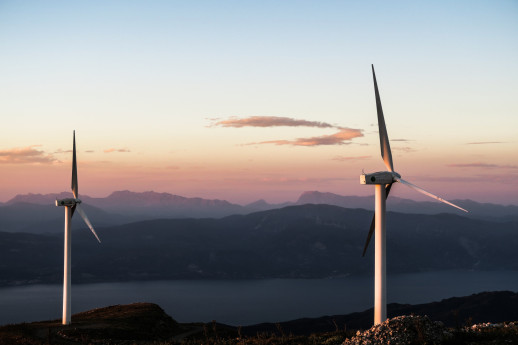Pollution
Climate Change
Sustainable Living & City
Plastics
Greenhouse Gases Emissions
Circular Economy & Green Chemistry
AXA Chairs
Belgium
2022.09.08
Plastic Waste Upcycling by Carbon Dioxide Valorization
Over the last decade, scientists have been looking for ways to minimize the impact of plastics on our planet, one of them being the development of biodegradable materials. However, fully biodegradable plastic is designed to decay at temperatures above 50 °C, which means it is not going to biodegrade anywhere else than in specialized facilities. Most of the time, it will break into smaller and smaller plastic particles of 5 mm or under - known as microplastics - which are even more harmful to the environment.
Another more promising technique being developed by scientists is the valorization of plastic wastes – i.e., converting them into products of a higher value. Using various chemical processes, researchers are developing chemical routes to upcycle these wastes; based on a “recycle, reuse, reduce” concept, they have shown real benefits. From an economic point of view, recycled plastics trade at a 20-40 percent discount compared to oil-based plastics, making it financially attractive for the industry. The higher the price of oil, the more attractive recycled plastics become. Given the increasing tension on oil resources, the financial benefit of such valorization might increase over time. With the global transformation towards circular economies and lower carbon emissions, plastic recycling should increasingly replace virgin plastics production.
With the AXA Research Chair at UMons, Prof. Olivier Coulembier aims at unleashing the potential of two emblematic plastic wastes, carbon dioxide and polyolefins – one of the most environmentally polluting families of plastics – to create new functional materials with superior properties. This will be done through a stepwise approach based on complemental work packages that can be outlined as follows:
- Fundamental research on the synthesis of new specific small organic molecules, named organo-catalysts, and the development of reactions able to chemically transform plastic wastes by dedicated treatments
- The development of new molecules and the clever selection of already existing candidates to improve the ability to sequester and reuse carbon dioxide
- The design of a realistic industrial set-up to associate the previous two points and demonstrate the real societal impact of the project
Polymer chemists like Prof. Coulembier have now the responsibility and the obligation to reinvent the way to design and recycle plastics while decoupling their fabrication from fossil feedstock. To do so, Prof. Coulembier aims to strengthen a well-set international academic network and to initiate collaborations with new academic and industrial partners. To maximize the societal impact of his chair, Prof. Coulembier will work “hand-in-hand” with industries to figure out both the business strategy and the new process developments to initiate the expected plastic wastes upcycling with carbon dioxide.
November 2022

Olivier
COULEMBIER
Institution
Université de Mons
Country
Belgium
Nationality
Belgian
Related articles
Sustainable Living & City
Climate Change
Climate Adaptation & Resilience
Urban Planning
Resilient Infrastructure & Safety
Environmental Justice
Post-Doctoral Fellowship
Australia
2023.06.20
Indicators for Climate Resilient City Planning
Expected start date:June-2023 Cities contribute enormously to global greenhouse emissions and are key drivers of climate change. By the same... Read more

Melanie
LOWE
Institut royal de technologie de Melbourne
Climate Change
Pollution
Aerosols & Particulate Matters
Public Health & Health Policy
Toxic Pollutants & Hazardous Substances
Post-Doctoral Fellowship
Greece
2023.06.01
Insight in Dust Fine-Mode to Mitigate Health Hazards in a Changing Climate
Expected start date:June-2023 In late-April/early-May 2022, a surge of remarkable dust storms ravaged Iraq, resulted- according to the World Health... Read more

Emmanouil
PROESTAKIS




